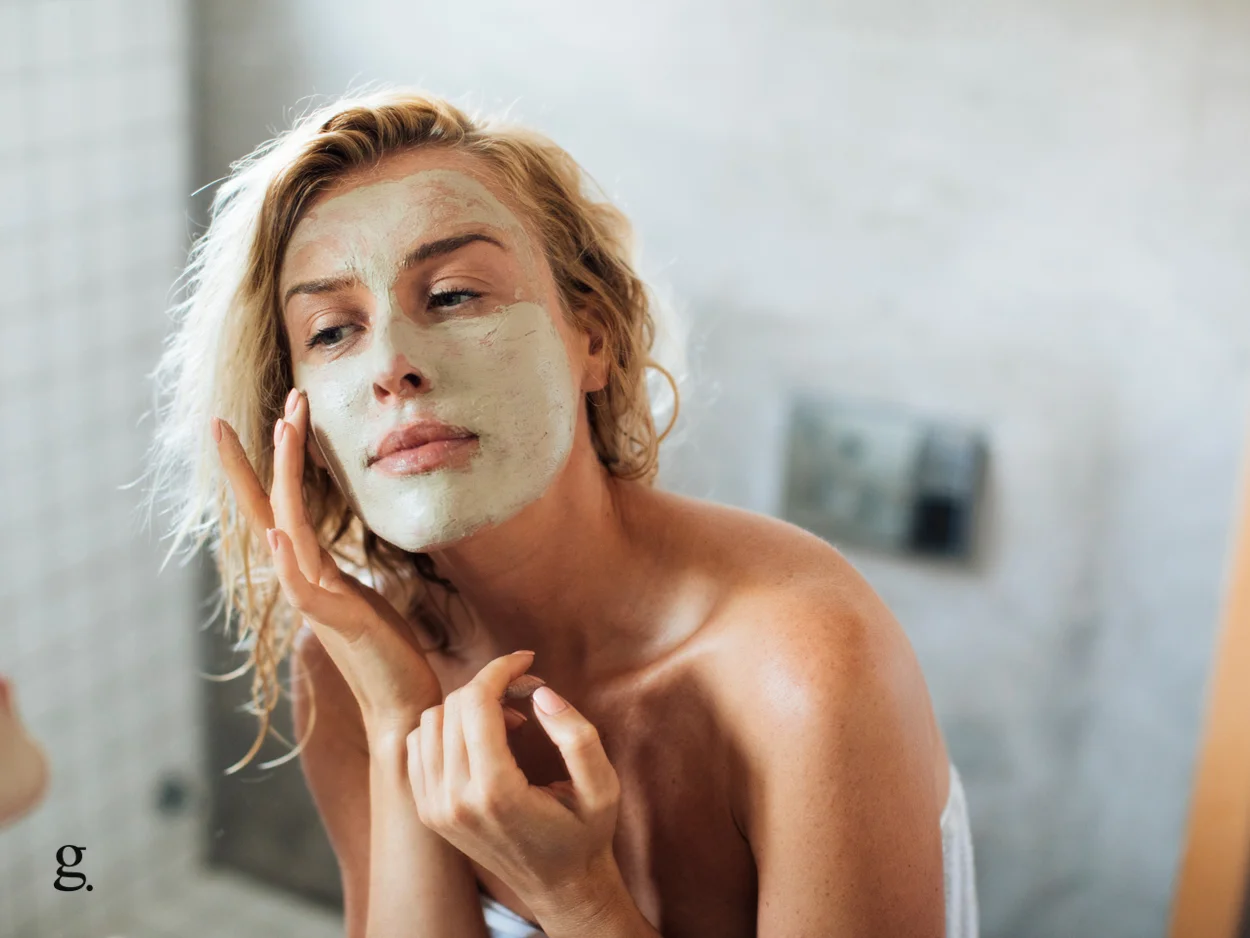The 20s are a time of change and self-discovery. You’re probably experimenting with different lifestyles, and trying new things. And while it’s all part of growing up, some of those activities can take a toll on your skin, causing it to look less-than-stellar, for want of a better phrase.
Who wants to peak in high school? Smoking, drinking, late nights, and stress can all contribute to premature aging, but thankfully, there are things you can do to help prevent your skin from showing the visible signs of aging, such as fine lines, wrinkles, bad texture, and dullness.
1. Drink water, not alcohol
We know, we know. You’re young, and you want to have fun. But alcohol is a diuretic, which means it causes your body to lose water. And when your body doesn’t have enough water, your skin can become dehydrated, leading to dryness, fine lines, and a dull complexion.
So how much water should you be drinking? The recommended daily intake is eight 8-ounce glasses, but that’s just a general guideline. You might need more or less depending on your activity level, the climate you live in, and other factors. A good rule of thumb is to drink when you’re thirsty and to keep a water bottle with you throughout the day so you can stay hydrated.
2. Overhaul your diet (no more #pizza)
Think of your diet as an extension of your skincare routine. Your skin is the biggest organ on your body, and as a result, requires a ton of nutrients to keep it looking young – slack on this and you’re doomed to see the early signs of aging at some point in your 20s.
While you may feel invincible in your 20s, too much junk food can lead to deficiency, so eating healthy foods that give your skin the nutrients it needs to stay looking its best is a good idea. So, load up on fruits, vegetables, and whole grains, and limit your intake of processed foods, sugary drinks, and saturated fats.
Additionally, try to watch your calorie intake and avoid excessive weight gain. Gaining too much body fat too quickly can lead to stretch marks, which can cause the skin to sag and wrinkle when you finally get around to shake it off.
3. Start exercising (twerking on TikTok isn’t cardio)
In addition to helping you maintain a healthy weight, exercise can provide anti-aging benefits.
We’re not saying you need to hit the gym seven days a week, but there are plenty of reasons to start working out regularly in your 20s.
Exercise increases blood flow, helping to provide essential nutrients to skin cells. Additionally, your blood helps carry oxygen to your skin cells, which in turn helps carry away waste products, including free radicals.
Plus, when you sweat, you’re helping to add additional moisture and kill bacteria on your skin’s surface. Also, as a bonus, exercise releases endorphins that can help improve your mood and reduce stress.
So next time you’re considering skipping a workout, remember that it could be good for keeping your skin looking young.
4. Stop stressing so hard
Stress is a common experience in our daily lives, and it can have several negative impacts on our health and wellbeing, including our skin’s health. When we feel stressed, our body produces cortisol, a hormone that can increase oil production in our skin. This excess oil production can clog our pores, leading to breakouts and acne.
Stress can also impair our skin’s natural barrier function, which can make it more vulnerable to damage from environmental stressors, such as pollution and UV rays. When our skin barrier is compromised, it can lead to dehydration, inflammation, and premature aging.
Furthermore, stress can interfere with our sleep quality, which can impact our skin’s health. During sleep, our skin repairs and rejuvenates itself, and if we don’t get enough quality sleep, it can result in dark circles, puffy eyes, and a dull complexion.
Therefore, it’s essential to find ways to manage our stress levels to maintain healthy skin. There are several stress-reducing techniques that we can try, such as meditation, deep breathing, yoga, or exercise. These activities can help to lower our cortisol levels and improve our mood, which can benefit our skin’s health.
5. Get your 8 hours of beauty sleep
We know, we know. You’re young and you want to party, but trust us – getting a good night’s sleep is crucial for keeping your skin looking its best in your 20s.
Sleep gives your body a chance to repair damaged cells and produce new ones – that includes skin cells! Thus, getting bad quality sleep (or no sleep at all) can seriously speed up the visible signs of aging.
We’ll leave you with the conclusion of one 2013 study that looked into sleep depravation’s impact on facial appearance – it’s pretty terrifying:
“The faces of sleep-deprived individuals were perceived as having more hanging eyelids, redder eyes, more swollen eyes, darker circles under the eyes, paler skin, more wrinkles/fine lines, and more droopy corners of the mouth” ((https://www.ncbi.nlm.nih.gov/pmc/articles/PMC3738045/))
So aim for seven to eight hours of sleep every night, and try to create a bedtime routine that includes winding down for 30 minutes before hitting the pillow. This means no more late-night Netflix binges!
6. Start getting skin treatments
No, we’re not talking about Botox (unless you want to, of course).
We’re talking about things like microneedling (also known as collagen induction therapy), laser skin renewal, ultrasound, and other minimally-invasive professional skin treatments that can help improve the appearance of your skin by helping stimulate collagen – the protein that plays a huge role in your skin’s youthful appearance.
If you’re not sure where to start, consult with a dermatologist or esthetician to see what they recommend for your specific skin type.
7. Start using anti-aging skincare products
Using anti-aging skincare products in your 20s can help to prevent visible signs of aging and keep your skin looking youthful and healthy for years to come. As the saying goes, prevention is better than cure, so it’s crucial to start taking care of your skin with an anti-aging routine as early as possible.
There are several anti-aging skincare products available in the market, but it can be challenging to figure out which ones are right for you. As a general rule, you should look for products that contain active ingredients that are proven to benefit the skin.
Retinol is one such ingredient that has been shown to improve skin texture, reduce fine lines and wrinkles, and promote collagen production. Peptides are another popular ingredient that can help to firm and tighten the skin. Vitamin C is an antioxidant that can protect the skin from environmental stressors, reduce inflammation, and brighten the complexion. Hyaluronic acid is a humectant that can hydrate the skin and improve its elasticity.
It’s important to note that not all anti-aging products are suitable for everyone, and it’s essential to find products that work well for your skin type and concerns. Additionally, it’s crucial to use these products consistently and as directed to see the best results.
8. Protect against the sun
This is probably the most important tip on this list. No matter how old you are, it’s important to use sunscreen every day to protect your skin from the sun’s harmful UV rays.
Sun damage has been named the leading cause of skin aging, due to how the UV rays destroy your skin cells (which is why you peel when you burn).
Make sure you always use sunscreen with an SPF of 30 or higher and reapply it when required (remember, you’ll need to do it more often if you’re sweating or swimming).
9. Stop smoking cigarettes
Smoking cigarettes is not only harmful to your overall health, but it can also have a significant impact on your skin’s appearance. The toxic chemicals found in cigarette smoke can accelerate the aging process of your skin, causing premature wrinkles, fine lines, and age spots.
Cigarette smoke contains more than 7,000 chemicals, many of which are toxic to your skin cells. The smoke damages collagen and elastin, two proteins that are responsible for maintaining the skin’s elasticity and firmness. Over time, repeated exposure to cigarette smoke can lead to a loss of these proteins, resulting in sagging skin, wrinkles, and a dull complexion.
In addition, smoking can also cause the blood vessels in your skin to constrict, reducing blood flow to your skin cells. This reduction in blood flow can deprive your skin of oxygen and essential nutrients, leading to a pale, lifeless complexion.
Quitting smoking is the best thing you can do for your skin’s health and appearance. When you stop smoking, your body begins to repair itself, and your skin can start to look brighter, smoother, and more youthful. However, it can take time for your skin to recover fully, and some damage may be irreversible. Therefore, it’s important to quit smoking as soon as possible to reduce the risk of further damage to your skin.
Conclusion
Taking care of your skin in your 20s is important if you want to age gracefully. Make sure you enjoy your 20s but bear in mind that your choices now can impact your skin in the future!
Remember, aging is a fact of life, but by following the tips on this list, you can help slow or even prevent your skin from showing visible signs of aging, such as fine lines, wrinkles, bad texture, and dullness.

